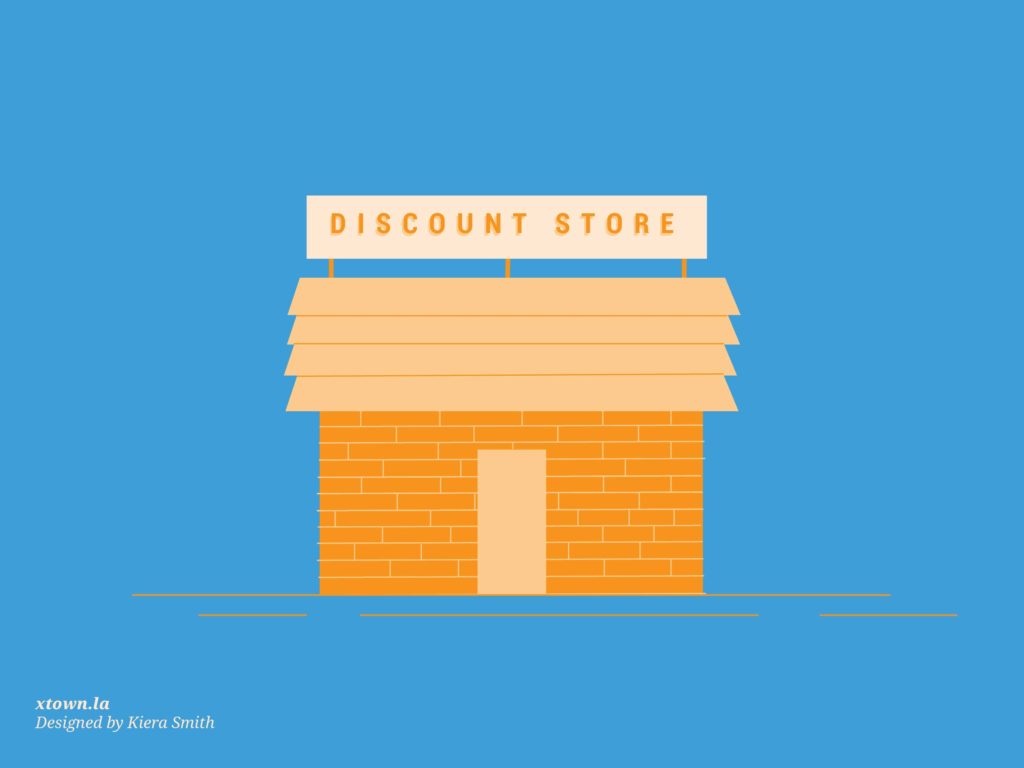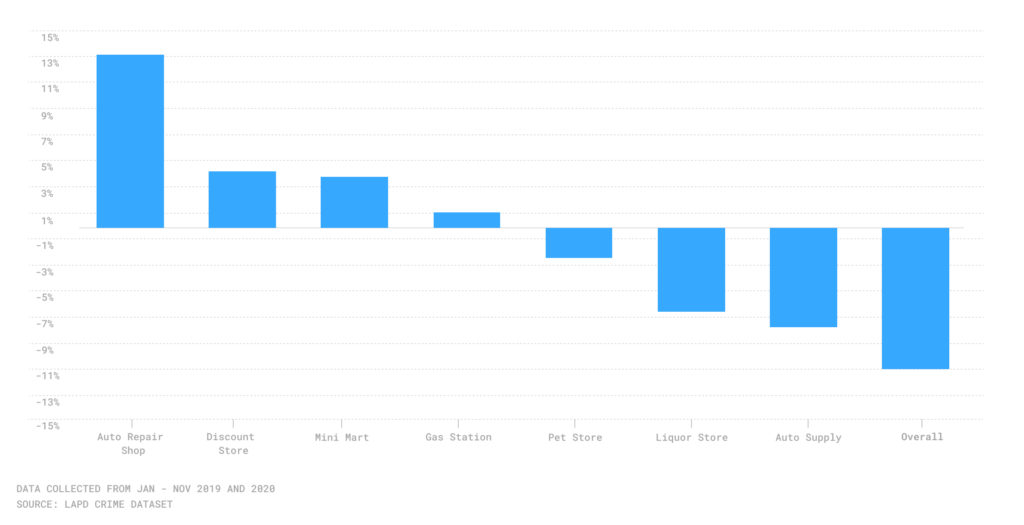Why are some businesses becoming crime magnets?

Two primary crime narratives have taken hold in Los Angeles in the coronavirus era: The first is the general decrease, with criminal incidents across the city falling nearly 11% during the first 11 months of the year, compared with the same time in 2019, according to Los Angeles Police Department data. The second is the shocking rise in shootings and murders, with Los Angeles recording more than 300 homicides for the first time in more than a decade.
Overlooked are some unexpected retail trends. Although many businesses were closed for months in the effort to slow the spread of COVID-19, and since then have had limited customer capacity, certain sectors have seen a crime spike.
That includes auto repair shops, where the number of incidents from January to November jumped 13%. The 263 reports outpace the 232 recorded during the same time period last year.
Crime changes for various retail sectors, 2020 vs. 2019

This comes even as auto repair shops have felt the pinch of the pandemic, with businesses seeing a drop in customers due to fewer people driving.
There were 51 reports of burglary at auto shops, representing 19% of the incidents. There were 21 reports each of felony vandalism and stolen vehicles. The LAPD reports include an incident in July when multiple suspects overwhelmed a victim at 9 p.m. at a repair shop on Slauson Avenue in Chesterfield Square. The suspects ransacked the business.
Captain Paul Vernon, who heads the LAPD’s Compstat division, theorized that thieves may be targeting auto repair shops because many have been closed, making them more appealing targets than homes, where people are more frequently present during the pandemic. He also noted car thefts are up this year, with a spike starting in mid-April.
Discount stores
Another unlikely target has been discount stores that advertise goods for a dollar or less. The LAPD recorded 337 crimes at these businesses during the first 11 months of the year, a 4% increase from the 323 reported during the same time last year.
Shoplifting was reported 93 times, accounting for 27.5% of the reports. There were 56 thefts, which comprised nearly 17% of the crimes, and dollar stores were robbed 52 times (15%).
Manchester Square saw 25 discount store crimes. Businesses in North Hollywood were the target on 24 occasions and Westlake recorded 17 incidents. Suspects used bodily force in 20% of the instances, accounting for 70 police reports.
Mini-marts and gas stations
Mini-marts, a staple of the Los Angeles snack scene, reported 925 crimes during the first 11 months of the year, a nearly 4% jump over the 890 in the same time in 2019.
There were 200 reports of petty shoplifting at mini-marts, representing nearly 22% of the incidents. Police recorded 172 reports of robbery and 109 cases of simple assault.
Gas stations, meanwhile, saw 1,209 criminal reports, a slight increase from the 1,195 during the same time last year.
According to the LAPD, 122 incidents took place in July, with another 119 in May. There were 83 reports in January, the lowest so far this year.
Vernon said a drop in thefts from some types of businesses and a rise in others is not surprising due to COVID-19’s impact on the economy. He added that people now targeting places including gas stations would otherwise likely try to steal from businesses such as those in a mall.
How we did it: We examined publicly available crime data from the Los Angeles Police Department from Jan. 1-Nov.30, 2020 compared with the same time period last year. Learn more about our data here.
LAPD data only reflects crimes that are reported to the department, not how many crimes actually occurred. In making our calculations, we rely on the data the LAPD makes publicly available. LAPD may update past crime reports with new information, or recategorize past reports. Those revised reports do not always automatically become part of the public database.
Want to know how your neighborhood fares? Or simply just interested in our data? Email us at askus@xtown.la.






